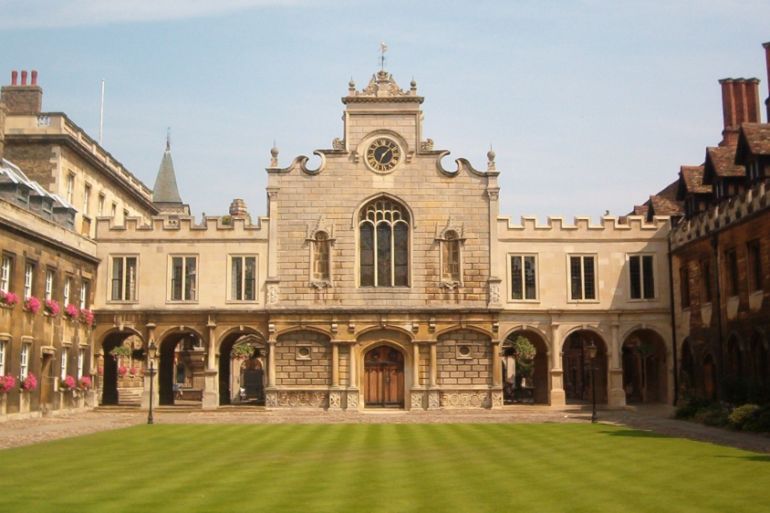Cambridge University to investigate its links to slavery
The prestigious seat of learning will look at how it may have benefited and underpinned attitudes to the slave trade.

The University of Cambridge plans to investigate its links to the trans-Atlantic slave trade and uncover how it may have benefited from slavery and the exploitation of labour, through financial and other means.
The university said on Tuesday that a two-year study will also look at how the work of its scholars may have helped underpin attitudes to the slave trade between the 18th and early 20th Century.
Keep reading
list of 4 items‘More mainstream’: In the UK, push for slavery reparations gains momentum
Paradise prison: How 107 Bangladeshis became enslaved on a Pacific island
A tale of two cities: Diaspora influx hikes cost of living for Ghanaians
“We cannot know at this stage what exactly it will find but it is reasonable to assume that, like many large British institutions during the colonial era, the University will have benefited directly or indirectly from, and contributed to, the practices of the time,” Professor Martin Millett, who will oversee the work, said.
“The benefits may have been financial or through other gifts. But the panel is just as interested in the way scholars at the university helped shape public and political opinion, supporting, reinforcing and sometimes contesting racial attitudes which are repugnant in the 21st Century”.
Cambridge says the study is part of a “wider reflection” on the links between slavery and universities in Britain and the United States.
Britain played a key role in the 18th century trans-Atlantic slave trade that saw millions of Africans shipped into bondage.
While it passed a law in 1807 abolishing the trans-Atlantic slave trade, it did not fully abolish slavery until 1833.
According to the Trans-Atlantic Slave Trade Database, around 12.5 million Africans were shipped across the Atlantic over 400 years.
More than 1.7 million people are believed to have died during the journey from either disease, dehydration, or abuse.
Of the more than 10 million people to reach the Western hemisphere, four million were taken to British, French, Dutch, and Danish holdings in the Caribbean, around 4.8 million to Brazil, 1.3 million to Spanish Central America. Around 400,000 were sent to North America.